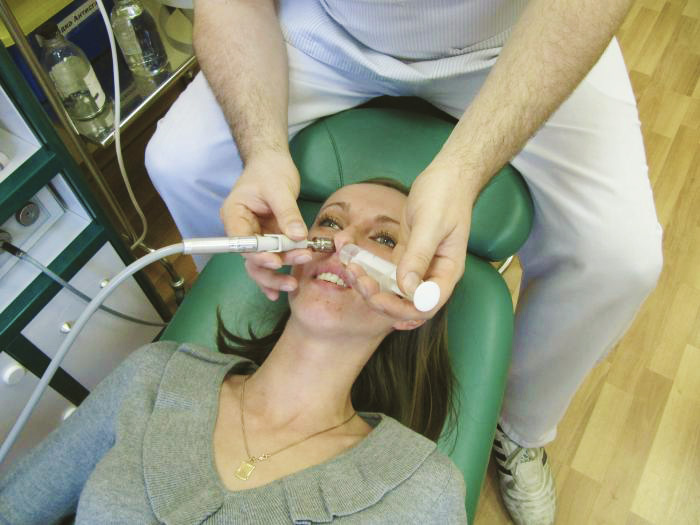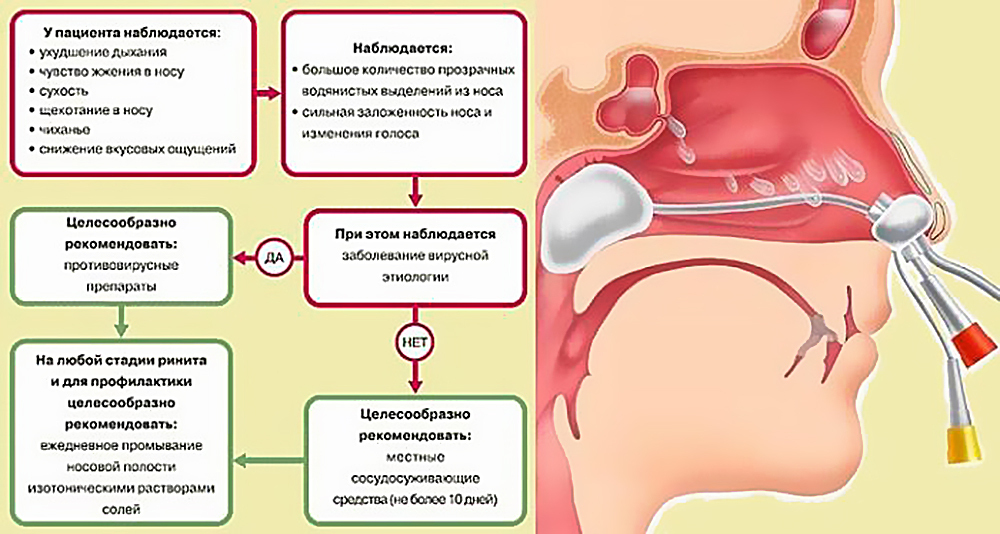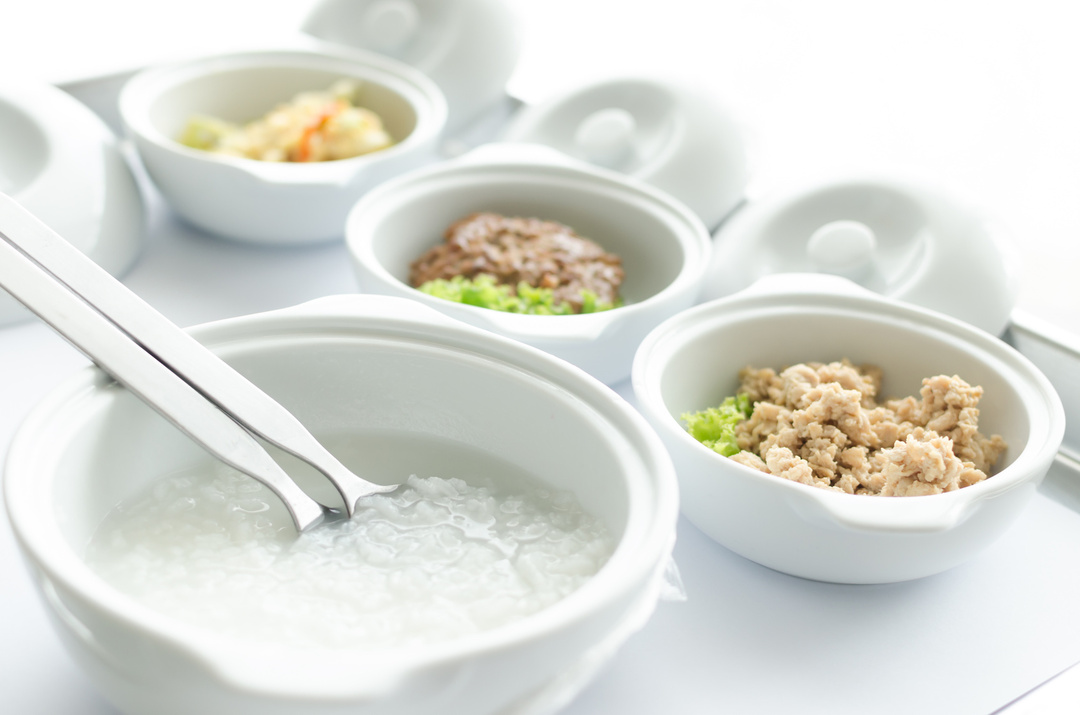How to treat angina at home?

Angina is a serious infectious disease predominantly streptococcal and less often of staphylococcal nature, requiring antibacterial therapy. Therefore, in this article, we will not talk about the various miraculous folk remedies and methods of treating this disease, but about how, in accordance with the prescriptions of the doctor, there should be treatment of angina at home.
Table of contents: What is angina?General recommendations for the treatment of sore throat Antibiotics for angina Local treatment Treatment of angina in childrenWhat is angina?
Quite often one can find the identification of the concepts of angina and acute tonsillitis.Indeed, the inflammation of the palatine tonsils( in the people of tonsils), which develops in angina, is tonsillitis.However, not every tonsillitis is caused by streptococci.For example, inflammation of the tonsils occurs in ARI, with diphtheria, infectious mononucleosis and a number of other diseases.Therefore, it will be more correct to call angina acute tonsillitis of streptococcal or staphylococcal nature, in which tonsils appear on tonsils.This division is of principal importance, since the treatment of tonsillitis with bacterial, viral or fungal infection, and even more so with diphtheria, is fundamentally different.
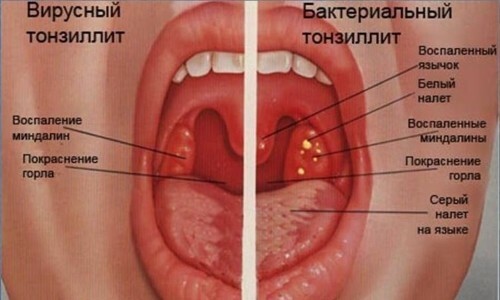
Subjectively, in any inflammation of the tonsils, the sensation in the patient is similar - this is a severe sore throat, which is worse when swallowed.In addition, there are other signs that are characteristic of a particular disease.For example, symptoms of angina are as follows:
- High temperature with which the disease begins.
- General intoxication.It shows weakness, chills, headache, poor appetite.
- Enlarged and painful lymph nodes( in the corners of the lower jaw and under the jaw).
- And, of course, the characteristic changes in the tonsils - an increase, reddening, purulent raids.
General recommendations for treatment of sore throat
We recommend to read:Uncomplicated sore throat can be treated at home, but must be shown beforehand to a doctor( therapist or otolaryngologist) who must determine if it is sore and administer treatment.If the disease is severe, especially in young children, and when complications develop( paratonsillar abscess, etc.), patients are hospitalized.
At home, the patient must always adhere to the following recommendations:
- Observe bed rest on the first days of illness or until body temperature normalizes.
- Drink plenty of fluids to reduce intoxication and restore the loss of fluid in the body, which arises from the intense sweating.Drinking should be warm, so that the throat is not supercooled.Too hot drinks are also not recommended, as this can increase inflammation.
- Eat right.If there is no appetite, it is not worth eating with strength.The food should be warm, not acute, soft, so as not to injure the tonsils.In such situations, broths, vegetable purees, etc. are useful.
- Take antibiotics prescribed by your doctor.It is very important that both the dose and the frequency of admission are observed.Discontinue antibiotic therapy after improvement is not possible, the minimum course of treatment is 7 days.
- Carry out procedures that help cleanse the tonsils from raids.The best way to sanitize your throat is to rinse it, but it's not recommended to force off the raids.
- It is necessary to drink antipyretic and anesthetic preparations.
Antibiotics for angina
Because in most cases( 80% of cases) angina is caused by streptococci, antibiotics are selected for the treatment of this disease, to which this microorganism is sensitive.These include:
-
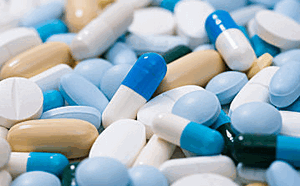 Penicillins( Ampicillin, Amoxicillin, etc.), including those with beta-lactamase inhibitors( eg, Amoxiclav).
Penicillins( Ampicillin, Amoxicillin, etc.), including those with beta-lactamase inhibitors( eg, Amoxiclav). - Cephalosporins( Cefazolin, Cefalexin, Cefuroxime, etc.).
- Macrolides( Azithromycin, Clarithromycin, Josamycin, etc.).This group is an alternative, because not all streptococci react properly to the use of these drugs, but if the patient has intolerance to penicillins and cephalosporins, macrolides should be used.
The duration of the treatment the doctor determines, depending on the clinical manifestations of the disease in a particular patient( some may have 7 days of antibiotic intake, others need 10).
Self-administration of antibiotics for angina, as well as for other infectious diseases, is not possible, because if you choose the wrong drug or dosage, streptococcus will not die, but it will develop stability, so it will be extremely difficult to cure the throat.
Local treatment
Important: topical treatment for angina does not replace the use of antibiotics.This is only an auxiliary method that helps cleanse the tonsils, reduce inflammation and painful sensations in the throat.
To date, there is a large amount of antiseptic agents that are indicated in acute tonsillitis:
- Sprays( Bioparox, Kameton, Ingalipt and others).
- Sucking pills and lozenges( Anti-angina, Grammidine, Lizobakt, Septotelet, Suprima-LOR, Strepsils).
- Thinning solutions( Hexoral, Stopangin, Stomatidin, etc.).
Rinse solutions can be prepared independently from boiled water, salt, soda, iodine or from a decoction of medicinal herbs( sage, chamomile, calendula, etc.).

Rinse with angina is preferable, especially if the patient has purulent angina, as this way it is possible to thoroughly rinse the tonsils and spit out all the raids along with the liquid.When used sprays and pills, everything that was on the tonsils, gets into the intestines.The only thing that must be remembered is that rinsing should be done according to the rules, without shaking the amygdala severely.
With regard to warming up the throat and all kinds of compresses, they are not recommended for angina.Useless and various inhalations.
Treatment of angina in children
The peculiarity of the course of angina in children up to 4-5 years is that they do not have a sore throat, that is, the child does not complain of unpleasant sensations.But fever and intoxication, as well as an increase in lymph nodes are present.Therefore, if the baby has a sudden increase in body temperature, it is necessary to look into his throat, and, of course, call a doctor.If the child's condition is not severe, the doctor will prescribe an antibiotic and will give recommendations on the treatment of angina at home.
Next, parents should do the following:
-
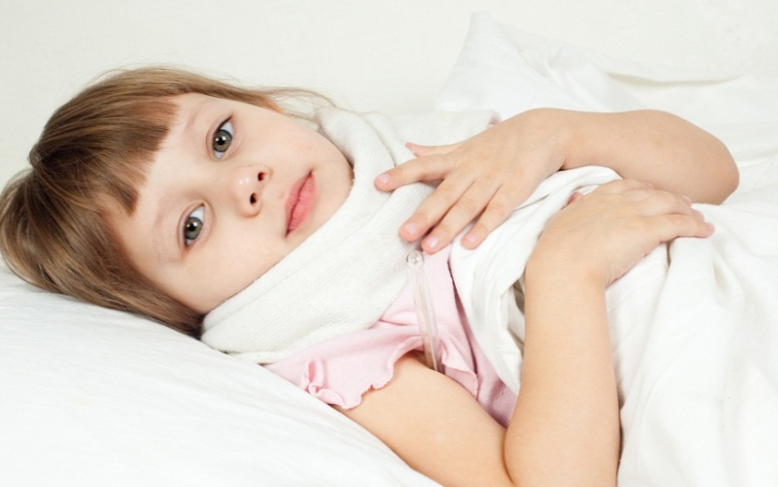 Keep the baby in bed until the temperature of the bodies normalizes( at least 2-3 days).
Keep the baby in bed until the temperature of the bodies normalizes( at least 2-3 days). - To drink it with warm tea, compotes, fruit drinks.
- To feed the baby with non-rusty food( soups, mashed potatoes, porridges).
- If the child is nauseous, do not force it to eat and drink( liquid can be given a few teaspoons as often as possible).
- Correctly knock down temperature with paracetamol or ibuprofen.
- Gargle a child with a solution of soda or a decoction of medicinal herbs, or by any other prescribed physician after every meal( in general, 5-6 times a day).To small children who can not do this procedure on their own, you can irrigate the tonsils with special sprays.Tablets for children under 3 years is better not to give, because they do not dissolve them, and swallowed, so there will be no effect.In addition, the child can simply choke.
- Well, the most important thing is to give the patient an antibiotic prescribed by the doctor.It can be in the form of syrup or sweet tablets, which can be dissolved in water.
It is important for adults and children to completely cure angina, that is, not only to reduce inflammation of the tonsils and eliminate the symptoms of the disease, but also to destroy pathogenic streptococci.To do this, you need to take antibiotics and follow all the doctor's recommendations.
If the infectious process is not completely suppressed, serious complications( rheumatism, pathological changes in the kidneys) and the transition of acute tonsillitis to the chronic form, in which after each general or local hypothermia, the exacerbation of the disease is possible.That is, the cause of the development of angina will no longer be an external infection, but its own streptococci, which the immune system can not overcome.To cure such chronic tonsillitis is much heavier than angina.
Zubkova Olga Sergeevna, medical reviewer, epidemiologist doctor

